Category Archives: Sea Grant
Sea Grant has released an Oil Spill Science Fact Sheet pointing readers to a variety of oil spill science information sources for both general and specific research and response audiences. The fact sheet is found here
Sea Grant has released an Oil Spill Science Outreach publication discussing examples of how oil and dispersants might affect Gulf of Mexico fisheries to help natural resource managers maintain healthy Gulf of Mexico ecosystems and protect the livelihoods of the people that depend on them. The bulletin is found here
The Gulf of Mexico Sea Grant Oil Spill Science Outreach Program has created overviews of the GoMRI synthesis activities. Core 1: Advancements in Understanding Ocean Circulation and Tracking the Movement of Oil Core 2: The Fate of Oil: Insights after Deepwater Horizon Core 2: Dispersant use and impacts after the Deepwater Horizon oil spill Core Read More
Sea Grant has released an Oil Spill Science Outreach publication discussing what happened to the oil that reached the Gulf of Mexico beaches in the aftermath of the Deepwater Horizon oil spill. The bulletin is found here
Sea Grant has released an Oil Spill Science Outreach publication discussing how the Deepwater Horizon oil spill affected the mental health of some residents along the Gulf Coast. The bulletin is found here
Sea Grant has released an Oil Spill Science Outreach publication discussing clean-up tools and techniques and decision-making factors related to oil spill response. The bulletin is found here
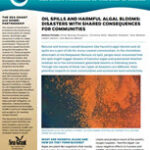
The Sea Grant Oil Spill Outreach Team released a publication that discusses the concerns that people had about harmful algae blooms (HABS) being triggered by residual oil from the Deepwater Horizon incident. HABs have occurred after oil spills in the past, but the relationship between the two is not always clear. Read Oil Spills and Read More
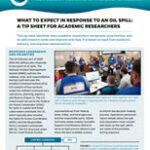
The Sea Grant Oil Spill Outreach Team released a tip sheet that discusses how academic researchers can become more familiar with priority oil spill research needs and with protocols for collecting data during response activities. Using feedback from academic, industry, and response representatives, the publication offers specific recommendations for actions that academic researchers can take Read More
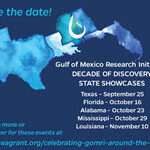
The Sea Grant Oil Spill Outreach Team is pleased to announce and extend an invitation to attend Gulf Coast state events that will highlight GoMRI contributions to research, recovery, and resilience from a state-based perspective. Each event features scientists affiliated with their respective state who are involved with GoMRI research as well as members of Read More
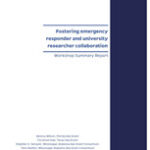
The Sea Grant Oil Spill Outreach Team a new report that draws from five workshops hosted by the Team where emergency responders and oil spill science researchers from around the Gulf of Mexico gathered to learn from one another. Workshop attendees discussed the role of academia in oil spill response, the response sector’s contributions to Read More
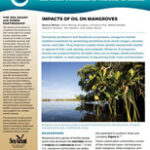
The Sea Grant Oil Spill Outreach Team released a publication that discusses various ways that oil exposure can impact mangroves, which have partially submerged root systems that make them especially sensitive to contaminants. Mangroves are widely distributed along Gulf of Mexico and Caribbean Sea coastlines, and they provide important ecosystem services such as protecting shorelines, Read More
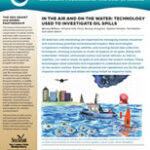
The Sea Grant Oil Spill Outreach Team released a publication on technologies that complement traditional ship, satellite, and mooring-based tools that researchers use to study oil spills, including Deepwater Horizon. These complimentary technologies include Unmanned Surface and Aerial Vehicles (USVs and UAVs), Saildrones, aerial drones, drifters, blimps, balloons, and advanced remote sensing technology. Read In Read More
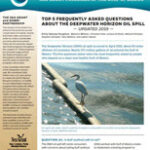
The Sea Grant Oil Spill Outreach Team released a publication that incorporates the latest science that answers the top five most frequently asked oil spill questions by people who depend on a clean and healthy Gulf of Mexico. Read Top Five Frequently Asked Questions about the Deepwater Horizon Oil Spill to learn about seafood safety, Read More
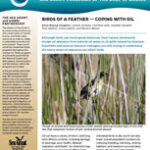
The Sea Grant Oil Spill Outreach Team released a publication that outlines what scientists have learned about how oil exposure affects birds. Using peer-reviewed research that covers oil spills around the world, the bulletin describes various effects ranging from birds directly exposed to oil to impacts on breeding and migration habits. Read Birds of a Read More
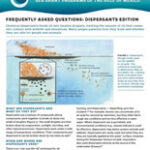
The Sea Grant Oil Spill Outreach Team released a product that concisely summarizes recent science regarding how dispersants work, how they are used, and how they affect sea life. The fact sheet also includes information on existing policies for chemical dispersants and how dispersants were used during Deepwater Horizon. Read Frequently Asked Questions: Dispersant Edition Read More
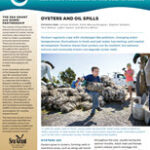
The Sea Grant Oil Spill Outreach Team released a publication about how oysters, which play a critical role in a healthy coastal wetland, fare when faced with oil exposure. The outreach publication also discusses how the Deepwater Horizon incident and subsequent response efforts affected oysters, a vital part of Louisiana’s seafood industry which is the Read More
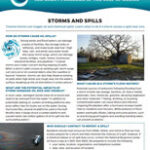
The Sea Grant Oil Spill Outreach Team released a Fact Sheet that uses easy-to-understand graphics and descriptions about how some oil accumulated at shorelines, on the ocean’s surface, in an underwater plume, and on the seafloor. Where did the oil go? A Deepwater Horizon fact sheet provides a public-friendly resource for all who are interested Read More

The Sea Grant Oil Spill Outreach Team released a publication that provides helpful information about storms and oil spills. Oil and chemicals from damaged rigs and vessels can form slicks that can pollute marine and shoreline ecosystems. If there is an existing oil slick offshore during a storm, high winds and rough seas can help Read More
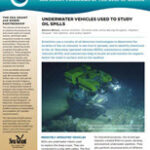
Have you ever wondered how scientists ‘see’ under water? The Gulf of Mexico Research Initiative is pleased to announce a new Sea Grant publication about the technology scientists use to look at and study the deep ocean, specifically manned and unmanned vehicles. Scientists have used remotely operated vehicles (ROVs), autonomous underwater vehicles (AUVs), and submarines, Read More
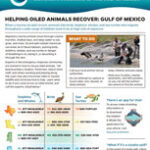
The Sea Grant Oil Spill Outreach Team released a publication that provides helpful tips for what to do if you come upon an oiled animal in the wild, including phone numbers for state-level animal-specific rescue authorities. Since even a small oil spill or leak can put certain migratory marine animals at risk for oil exposure, Read More
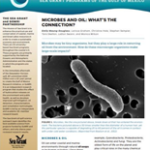
The Sea Grant Oil Spill Outreach Team released a publication that explains the role that microbes play in using oil as an energy source and removing it from the environment. The 8-page brochure Microbes and oil: What’s the connection? describes how these microscopic organisms can have a large-scale effect by quickly degrading oil in water Read More
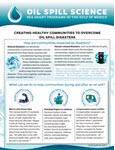
Ever wonder how individuals and communities can best recover from an oil spill? Check out our latest fact sheet. Find out what can we do to help communities during and after an oil spill. Human-caused disasters, such as accidental oil spills, tend to break down even the strongest communities. Impacts to human health, the environment, Read More
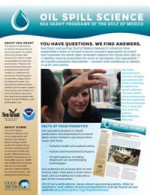
The Sea Grant Oil Spill Outreach Team is a team of oil spill science outreach specialists to collect and translate the latest peer-reviewed research for those who rely on a healthy marine ecosystem for work or recreation. Our specialists – all trained scientists themselves – connect with audiences in person, in print, and online. Our Read More
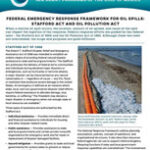
The Sea Grant Oil Spill Outreach Team released a product that gives a concise overview of the Stafford Act (1988) and the Oil Pollution Act (1990) that govern oil spill response. Also explained are how the National Response Framework, the National Contingency Plan, and the Oil Spill Liability Trust Fund fit into the picture. Read Read More
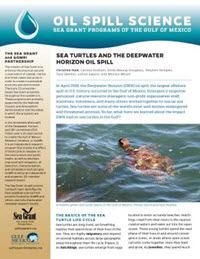
In April 2010, the Deepwater Horizon (DWH) oil spill, the largest offshore spill in U.S. history, occurred in the Gulf of Mexico. Emergency response personnel, natural resource managers, non-profit organization staff, scientists, volunteers, and many others worked together to rescue sea turtles. Sea turtles are some of the world’s most well-known endangered and threatened animals. Read More
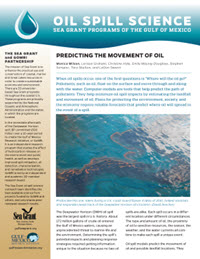
When oil spills occur, one of the first questions is “Where will the oil go?” Pollutants, such as oil, float on the surface and move through and along with the water. Computer models are tools that help predict the path of pollutants. They help minimize oil spill impacts by estimating the landfall and movement of Read More
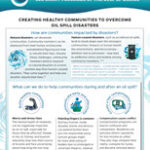
The Sea Grant Oil Spill Outreach Team released a publication that discusses how communities respond to a human-induced incident such as an oil spill as compared to natural disasters. Both types of events can affect the environment, economy, and human health; however, how people respond tends to be different. Social scientists documented a series of Read More
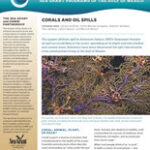
The Sea Grant Oil Spill Outreach Team released a publication that explains which corals were affected by the Deepwater Horizon incident and how scientists are monitoring those corals. The bulletin also describes the important roles that corals play in maintaining a healthy ocean and how corals worldwide struggle in the face of constant, multiple threats. Read More
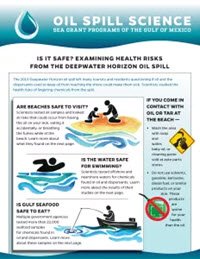
The 2010 Deepwater Horizon oil spill left many tourists and residents questioning if oil and the dispersants used to keep oil from reaching the shore could make them sick. Scientists studied the health risks of lingering chemicals from the spill. This fact sheet covers common questions, such as: Is Gulf seafood safe to eat? Are Read More
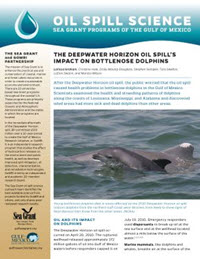
After the Deepwater Horizon oil spill, the public worried that the oil spill caused health problems in bottlenose dolphins in the Gulf of Mexico. Scientists examined the health and stranding patterns of dolphins along the coasts of Louisiana, Mississippi, and Alabama and discovered oiled areas had more sick and dead dolphins than other areas. OIL Read More
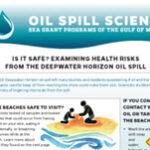
The Sea Grant Oil Spill Outreach Team released a publication that addresses the public’s questions about health safety after the Deepwater Horizon incident. The fact sheet, Is it Safe? Examining Health Risks from the Deepwater Horizon Oil Spill succinctly explains findings from peer-reviewed studies and reports from state and federal agencies that investigated the safety Read More
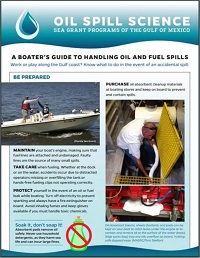
The Sea Grant Oil Spill Outreach Team released an informational brochure just in time for the summer boating season. The one-page guide gives boaters information on how to prepare for, respond to, and report an accidental oil or fuel spill on their vessels. A Boater’s Guide to Handling Oil and Fuel Spills, which is available Read More
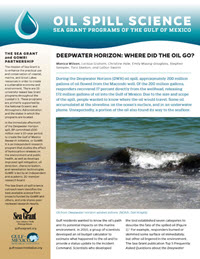
The Sea Grant Oil Spill Outreach Team released an informational publication that discusses the locations where approximate amounts of oil went after the Deepwater Horizon spill. The publication Deepwater Horizon: Where did the oil go? summarizes what researchers have discovered about where the spilled oil traveled and what processes carried it along its path. Included are response actions Read More

The Sea Grant Oil Spill Science Outreach Team released a new informational brochure just in time for the summer boating season. The one-page guide gives boaters information on how to prepare for, respond to, and report an accidental oil or fuel spill on their vessels. A Boater’s Guide to Handling Oil and Fuel Spills, which Read More

The Sea Grant Oil Spill Outreach Team released a new informational brochure that explores products currently available or in development to remove oil from water in future spills. The brochure Emerging Surfactants, Sorbents, and Additives for Use in Oil Spill Clean-Up addresses surfactants inspired by microbes, finding treasure in unexpected places (everyday materials), and tiny materials Read More

The Sea Grant Oil Spill Outreach Team recently developed a new informational brochure that explores basic aspects of oil as a natural resource and oil spills. The synthesizes peer-reviewed science for a broad range of general audiences, particularly those who live and work across the Gulf Coast. The brochure Frequently Asked Questions Oil Edition addresses Read More
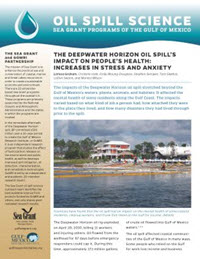
The Sea Grant Oil Spill Outreach Team released a new informational brochure about how the Deepwater Horizon oil spill affected the mental health of some Gulf Coast residents. They reviewed published science and worked with experts to develop this brochure for a broad range of audiences, particularly those who live and work across the Gulf Read More
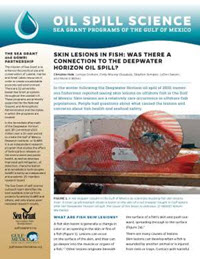
The Sea Grant Oil Spill Outreach Team released a new informational brochure about the connection of Deepwater Horizon and fish lesions reported in the winter following the spill. The team reviewed published science and worked with experts to develop this brochure for a broad range of audiences, particularly those who live and work across the Read More
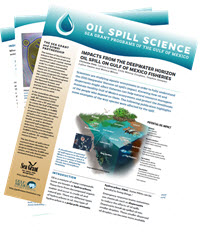
The Sea Grant oil spill science outreach team released an informational brochure about the Deepwater Horizon oil spill’s impacts on fisheries. This brochure synthesizes peer-reviewed oil spill science for a broad range of general audiences, particularly those who live and work across the Gulf Coast.The brochure Impacts From the Deepwater Horizon Oil Spill on Gulf Read More
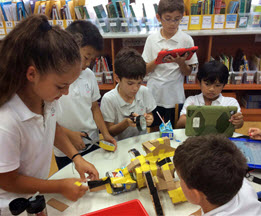
Communicating oil spill research is essential to improve society’s understanding about spills and their ability to respond to and mitigate them. The Gulf of Mexico Research Initiative (GoMRI) has been funding spill-related research since 2010. Here are ten outstanding education products and resources that GoMRI and its science community have developed to share what they Read More
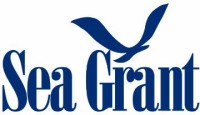
Click to view Information on Sea Grant Oil Spill Seminars in April 2016 These seminars will be streaming live so you can participate remotely. April 6 in Austin, TX: Chilling with your chums: How did the oil spill impact Gulf fisheries? Register here. More info here. April 14 in Mobile, AL: Where did the oil go? Register here. More info here.
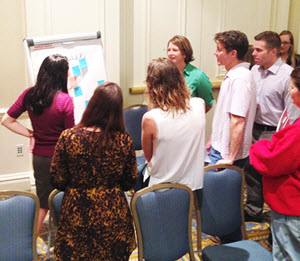
The four Sea Grant Programs in the Gulf of Mexico region, the Gulf of Mexico Research Initiative, and the Consortium for Ocean Leadership jointly co-hosted an outreach workshop at the 2016 Gulf of Mexico Oil Spill and Ecosystem Science conference on February 1 in Tampa, FL, called Sharing Oil Spill Science with Non-Scientists: Effectively Communicating Read More

The Sea Grant oil spill outreach team released three new informational brochures about the dispersants used to treat the Deepwater Horizon oil spill. These brochures synthesize peer-reviewed oil spill science for a broad range of general audiences, particularly those who live and work across the Gulf Coast. Chemical Dispersants and Their Role in Oil Spill Read More

The Sea Grant Oil Spill Outreach team released two new brochures that discuss Deepwater Horizon and beached oil. Top 5 Frequently Asked Questions about the Deepwater Horizon Oil Spill: Five years after the incident, tourists to the Gulf of Mexico still have questions about the oil spill. This publication addresses how the oil was cleaned Read More
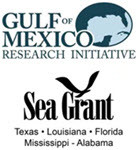
The Gulf of Mexico Research Initiative (GoMRI) was established by a $500 million commitment from BP in response to the 2010 Deepwater Horizon oil spill. The 10-year research program aims to mitigate the impacts of hydrocarbon pollution and stressors on the marine environment and public health from the spill, as well as improve society’s understanding Read More
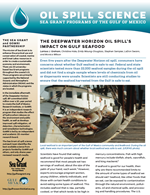
The Sea Grant Oil Spill Outreach team released two fisheries-related informational brochures that synthesize peer-reviewed oil spill science for a broad range of general audiences, particularly those whose livelihoods depend on a healthy Gulf. The Deepwater Horizon Oil Spill’s Impact on Gulf Seafood brochure presents results from federal, state, and independent seafood testing after the Read More

A seminar series by Sea Grant in the Gulf of Mexico (Navigating Shifting Sands: Oil on our Beaches) was held on August 5, 2015, in Pensacola, FL. Scientists shared their work to answer lingering questions about oil that washed up on Alabama and Florida beaches during the Deepwater Horizon oil spill. More than 85 participants Read More
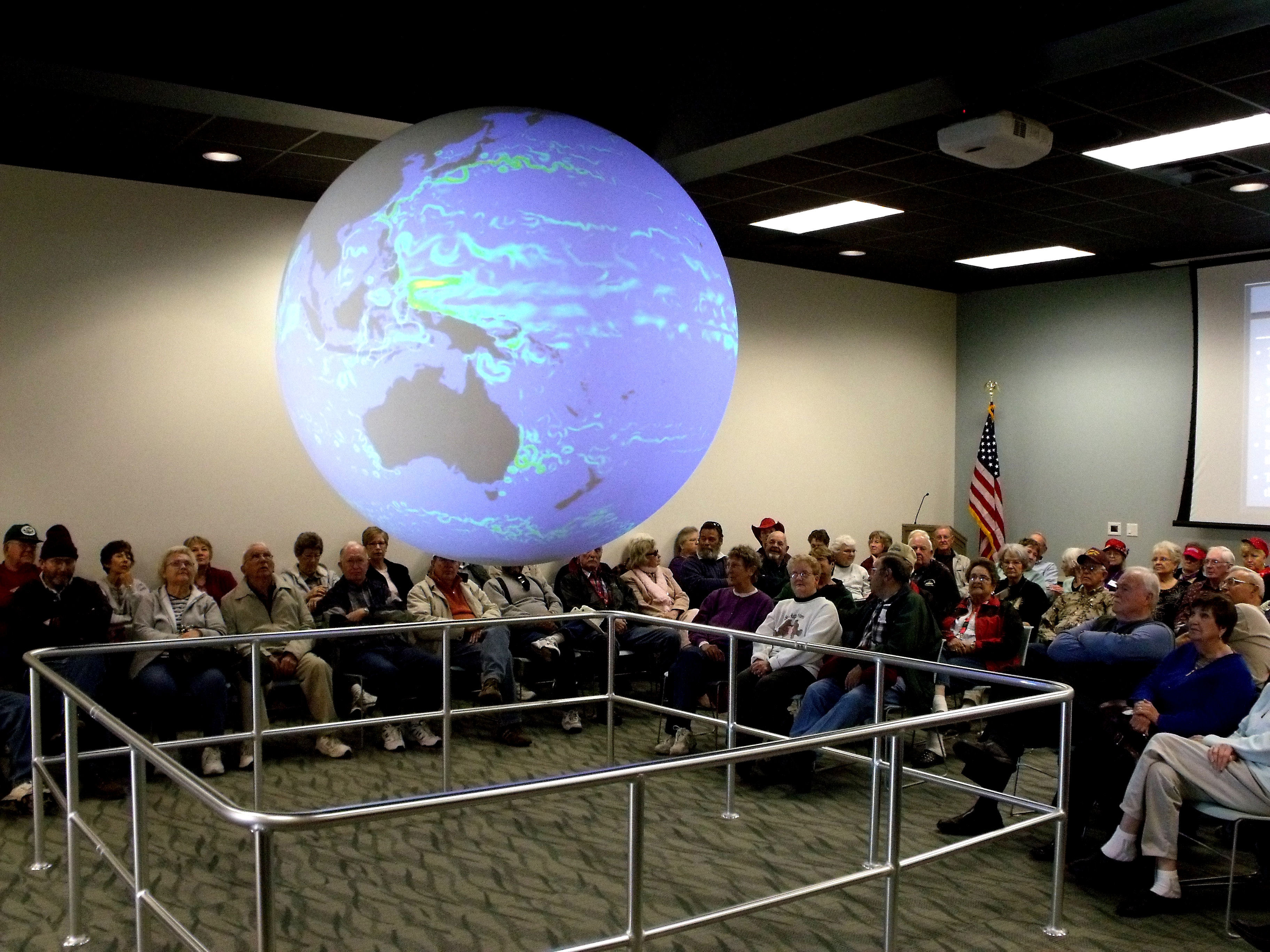
All the world’s a stage – literally – as oceanic, atmospheric, and geologic conditions and events come to life on a “revolving” globe. General public visitors attend a Science on a Sphere presentation at the Bay Education Center. (Photo by Jackie Hattenbach) Researchers and science educators are using visualizations of oil spills, tsunamis, and hurricanes Read More
